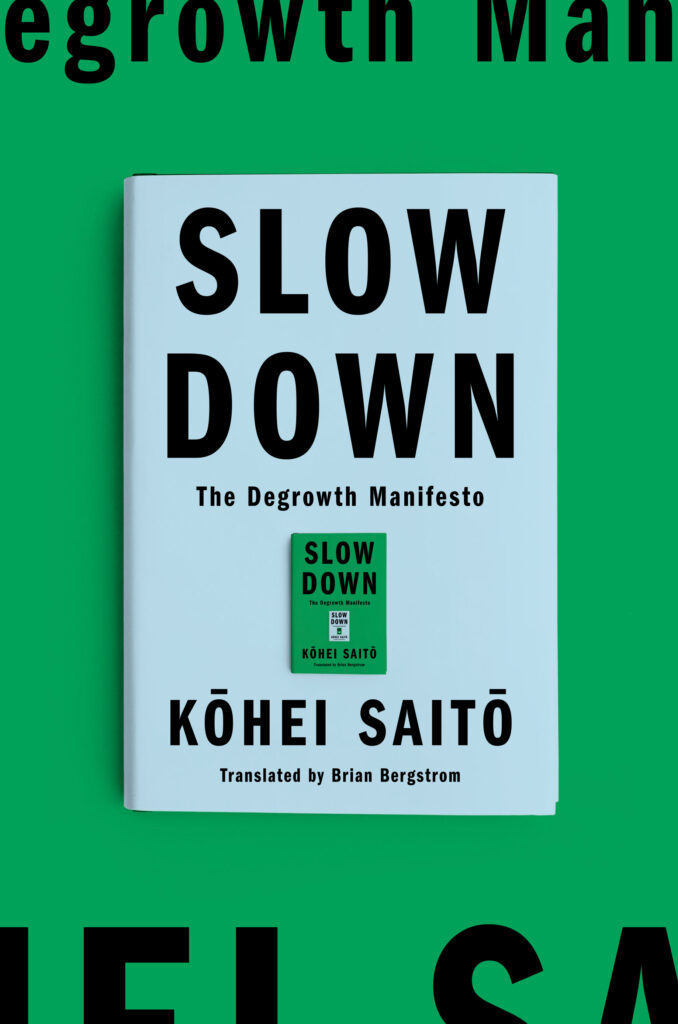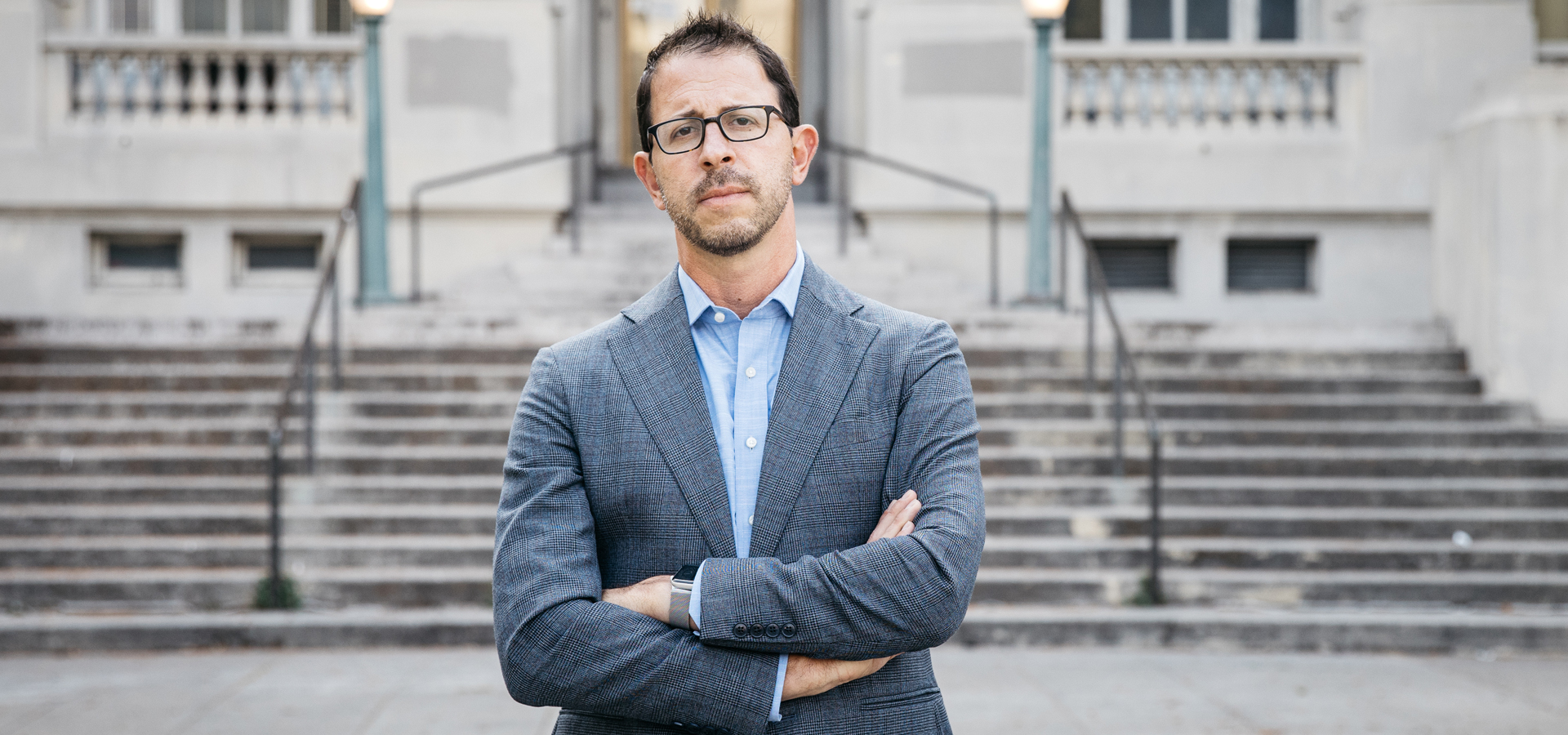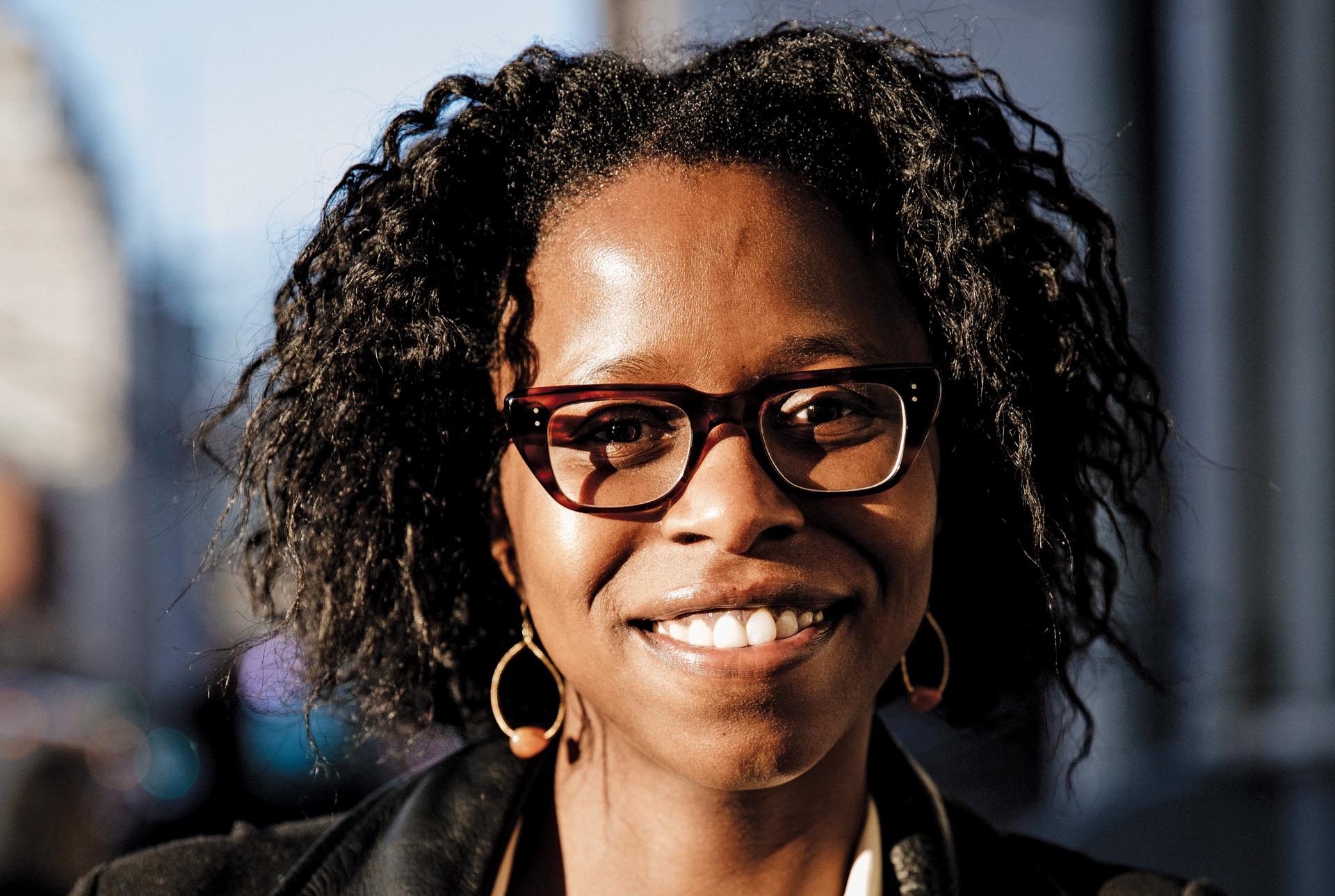Beyond Capitalism: “Degrowth Communism” for a Sustainable Future

Capital in the Anthropocene by Marxist philosopher Kohei Saito ’09 was an unexpected blockbuster in his home country of Japan, selling more than 500,000 copies. Its English-language translation, released in early 2024 with the title Slow Down: The Degrowth Manifesto, was an international best seller.
That’s surprising, not only because philosophy books aren’t generally best sellers but because Japan has long been known to believe in the neoliberal values of free markets, limited government, and privatization.
“Japan is a conservative society, but the widening of the wealth gap that occurred as a result of the COVID pandemic increased the visibility of social and economic inequality,” Saito said. “When the economy was hit, low-wage workers were the first to lose their jobs while the wealthy increased their share, widening the gap even further.”
In Slow Down—which follows the academic-focused books Karl Marx’s Ecosocialism and Marx in the Anthropocene—Saito offers a new vision of society that counters the current practice of unrestricted growth. He argues that capitalism’s insatiable demand for growth and wealth not only creates inequality but is destroying the planet, and only a planned reduction in material production can save it.
“Capitalism, as a system of constant expansion, is the root cause of today’s climate crisis,” said Saito, a professor of philosophy at the University of Tokyo. “We need to imagine a different system, which I call ‘degrowth society,’ and Marx is very helpful in this regard.”
Growing up in Japan, Saito didn’t pay much attention to the problem of inequality, but that began to change after Saito came to Wesleyan as part of the Freeman Asian Scholarship program and, in his first year, volunteered to help build houses for survivors of Hurricane Katrina in New Orleans.
“That was the moment I witnessed the huge economic inequality existing in the U.S., the country with the largest GDP in the world,” Saito said. “That was my first encounter with some kind of contradiction of capitalism, and I wanted to study more about why poverty exists.”
After graduating from Wesleyan, Saito would go on to Germany to study in earnest the ideas of Karl Marx—the philosopher and economist who is probably best known for writing, with his longtime collaborator Friedrich Engels, The Communist Manifesto, which argued, essentially, that free-market economies inevitably produce gross inequalities—completing his PhD in 2015. While in Germany, the 2011 Fukushima nuclear disaster in his home country made Saito further realize how capitalism doesn’t just exploit workers and create glaring inequality: It can also seriously damage the environment.
Saito’s idea of a degrowth society—or “degrowth communism,” as he refers to it—envisions a society that values well-being, environmental sustainability, and social equality over continuous economic expansion. It’s a system that prioritizes the collective ownership and management of resources, along with a deliberate reduction in overall economic output to achieve these goals.
For Saito, this would involve a future where the economy is focused on satisfying people’s need to spend more time with family and friends, building community together, and developing talents that aren’t tied to capitalism’s insatiable need for production, or its manufactured needs for possessing bigger cars or the latest version of the iPhone.
In his book, Saito argues that Marx’s way of understanding the relationship between humans and nature, encapsulated in the theory of “metabolic rift,” can determine how humans can respond to the climate and ecological crisis the planet now faces. The basic premise of Marx’s theory is that the interaction between humans and nature is the basis of life itself, and capitalism organizes human interactions with their ecosystems in such a way that it creates an irreparable disruption that threatens all life.
“We can build on Marx’s theory of metabolism and talk about today’s contemporary issues like the climate crisis, and this is what I tried to do in my book,” Saito said. “It’s a very different way of looking at Marx, but I think he would agree with my own understanding, because he changed his views significantly in his later years.”
In the wake of the phenomenal success of his book, Saito wants to explore the possibilities of how to implement his ideas. Because he believes the climate crisis is so urgent, achieving a degrowth society isn’t something that can be implemented gradually.
“In order to accelerate the process, we need to plan the entire economy, but we need to plan it in a more democratic manner, not like a top-down dictatorship,” Saito said. “We need to plan how to decarbonize society, and how to satisfy all the needs of the people during the process of transition.”
By Steve Neumann


-819x1024.jpg)


